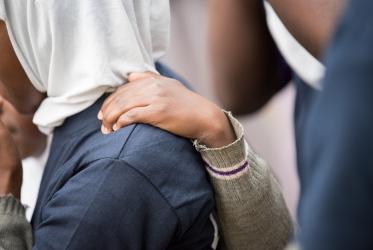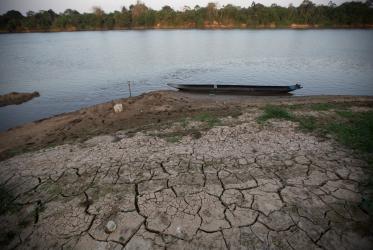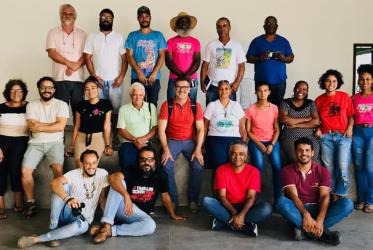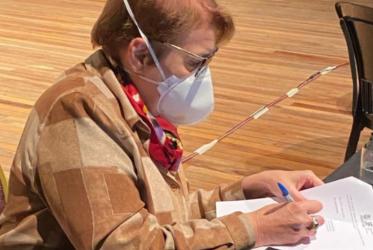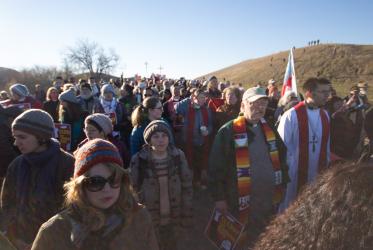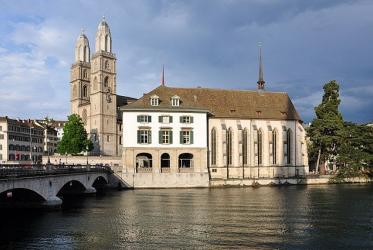Displaying 121 - 140 of 613
27 October 2021
EWN members stand in solidarity with water and land defenders
21 September 2021
Brazilian ecumenical water network launched
29 July 2021
Pulling together for a living River Pardo
02 July 2021
Morning Prayer for Monday, 7 June 2021
07 June 2021
Defending the ‘blue soul of life’
08 April 2021



